New Products
-
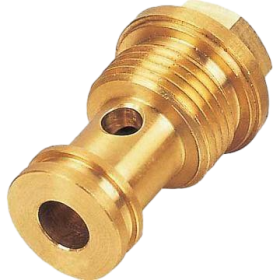
Custom Turn-Mill Combination brass parts
-
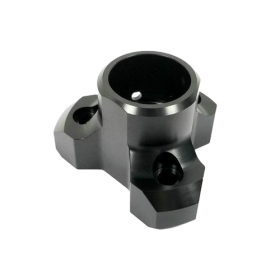
Custom Turn-Mill Combination parts
-
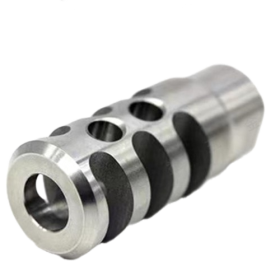
Precision CNC Turning Parts Stainless Steel shaft accessories
-
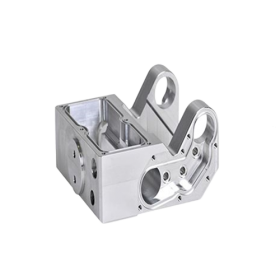
Custom CNC Milling Automated Machinery and Equipment Parts
-
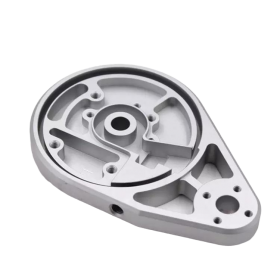
OEM/ODM Custom High Precision Metal CNC Machining/Milling/Turning Service CNC Turning Part
-
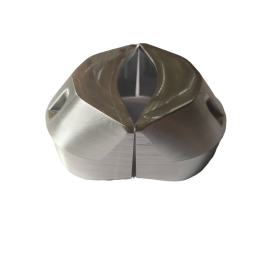
Precision CNC Milling Robotic Arm parts
Guide to Stainless Steel CNC Machining
What is Stainless Steel CNC Machining?
Stainless steel CNC machining is a precise, automated process where computer-controlled tools shape and fabricate stainless steel components. The steps involved include:
l Design and Programming: Engineers use CAD software to design 3D models, which are then translated into machine-readable instructions using CAM software.
l Material Preparation: Stainless steel workpieces are positioned securely on the CNC machine for precision machining.
l Machining Operations: Operations such as milling, turning, drilling, and grinding shape the workpiece.
l Quality Inspection: Finished parts undergo rigorous inspection to ensure they meet exact design specifications.
This process ensures accuracy, repeatability, and efficiency, making it suitable for producing complex stainless steel components.
Types of Stainless Steel for CNC Machining
Different grades of stainless steel cater to various applications, offering unique characteristics. Here are the main types:
1. Austenitic Stainless Steel
Grades: 303, 304, 316
Features: High corrosion resistance, excellent weldability, and good formability.
Applications: Medical devices, food processing equipment, and chemical containers.
2. Martensitic Stainless Steel
Grades: X12Cr13, X50CrMoV15
Features: High hardness, wear resistance, and toughness.
Applications: Surgical instruments, cutlery, and mechanical parts.
3. Ferritic Stainless Steel
Grades: 430, 431, 439
Features: Magnetic properties and moderate corrosion resistance.
Applications: Automotive components, kitchen appliances, and industrial machinery.
4. Duplex Stainless Steel
Grades: X2CrNiN22-2, X2CrNiMoCuN25-6-3
Features: Combines strength and corrosion resistance of austenitic and ferritic stainless steels.
Applications: Marine equipment, chemical processing, and oil and gas components.
5. Precipitation-Hardening Stainless Steel
Grades: 17-4 PH
Features: High strength and excellent corrosion resistance.
Applications: Aerospace parts, precision tools, and medical implants.
The Advantages of Stainless Steel in CNC Machining
Stainless steel is a go-to material for CNC machining due to its exceptional properties and adaptability across diverse industries. Below are its key advantages:
1. Corrosion Resistance: Stainless steel resists rust and corrosion, ensuring long-lasting performance even in harsh environments.
2. High Tensile Strength: Its durability makes it ideal for components subjected to heavy stress and wear.
3. Temperature Resistance: Stainless steel maintains its mechanical properties in extreme temperatures, making it suitable for high-heat applications.
4. Biocompatibility: As a non-toxic material, it’s widely used in medical devices and implants.
5. Aesthetic Appeal: With a sleek silver-white finish that resists tarnishing, stainless steel combines functionality with visual appeal.
Overcoming Challenges in Stainless Steel CNC Machining
Machining stainless steel presents challenges such as tool wear, heat buildup, and chip formation. Here’s how to address these:
l Minimize Workpiece Deformation: Use appropriate feed rates and cutting speeds.
l Select High-Performance Tools: Opt for carbide tools to handle stainless steel’s toughness.
l Control Heat Generation: Employ water-based coolants or cutting fluids.
l Optimize Chip Management: Use chip-breaking cycles to prevent clogging and improve efficiency.
Essential Tools and Equipment for Stainless Steel CNC Machining
Achieving precision in stainless steel CNC machining requires the right tools and equipment:
CNC Machines: High-rigidity machines designed for tough materials.
Cutting Tools: Tungsten carbide drills, end mills, and inserts for durability and precision.
Coolant Systems: Advanced systems to dissipate heat and extend tool life.
Workholding Fixtures: Secure clamps and vises for stability during machining.
Measurement Tools: Micrometers, calipers, and coordinate measuring machines for quality assurance.
Applications of Stainless Steel CNC Machining
Stainless steel’s versatility makes it indispensable in various industries:
Automotive Industry
Components: Exhaust systems, engine parts, and fuel lines.
Advantages: Strength and corrosion resistance ensure durability.
Marine Industry
Components: Propellers, valves, and fasteners.
Advantages: Superior resistance to saltwater corrosion.
Medical Industry
Components: Surgical instruments, implants, and diagnostic equipment.
Advantages: Biocompatibility and high precision.
Food and Beverage Industry
Components: Processing machinery, storage tanks, and piping.
Advantages: Hygienic properties and resistance to corrosion.
Aerospace Industry
Components: Landing gear, turbine blades, and structural parts.
Advantages: High strength-to-weight ratio and temperature resistance.
Conclusion
Stainless steel’s unique properties and adaptability make it an ideal material for CNC machining. From aerospace to medical and marine industries, stainless steel delivers reliability, precision, and aesthetic value. By leveraging advanced CNC machining techniques, manufacturers can overcome challenges and produce high-quality parts tailored to industry needs.
Explore how our stainless steel CNC machining services can meet your project requirements. Visit Bomei Machining to learn more. Let’s turn your designs into reality with precision and expertise.


 Evan Xiao
Evan Xiao